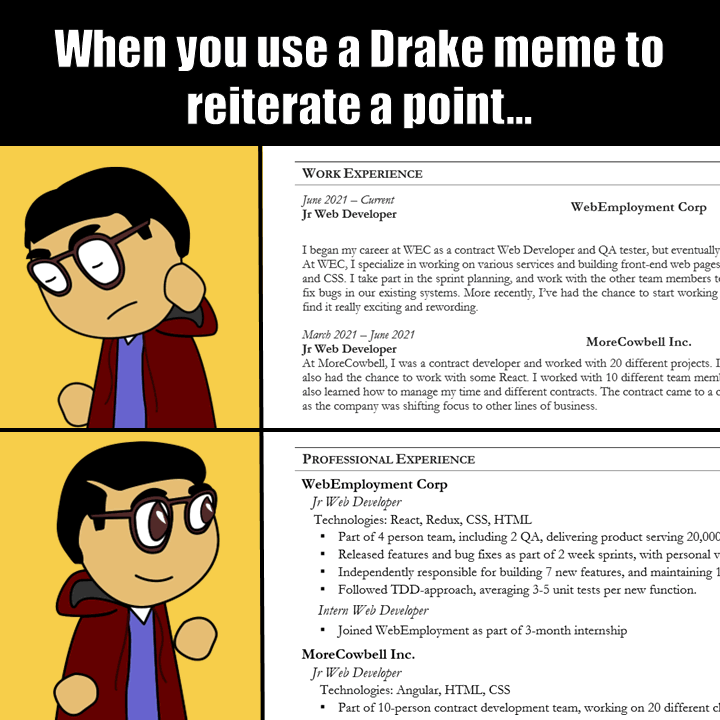On Giving Criticism
After years of trying different recommended techniques for delivering criticism (looking at you Compliment Sandwich) I've concluded: no matter how you deliver criticism, it's going to be a tough conversation. There's no avoiding it - people will get hurt, grow defensive, get upset, be offended, or at a minimum be mildly irked.
It's led me to wonder: why should expecting otherwise? Being criticized sucks. In my own situations, even when I ask for criticisms from those I trust and admire, it stings when I hear the criticism. I feel compelled to defend myself, to explain myself, to give a reason why their criticism doesn't have the full picture. I feel defensive even when someone validates something I'm already criticizing in myself.
The result: I'm tired of pretending emotions aren't real. I'm tired of pretending there's some sterile, stoic, clinical way of giving a Spock-like logical assessment of someone's flaws and that it will be met well. Compliment Sandwiches are formulaic, and undermine forming a genuine relationship with the person you are criticizing.
Emotions are natural. Hearing a criticism - whether it's from someone you trust, or someone you don't - creates a sense of isolation, a feeling of being misunderstood, or a feeling that you weren't given the support you needed.
It's shifted me to try something new: acknowledge the emotion, and process it together. Part of that is to also emphasize the part of the criticism that makes us the most defensive: Criticism is subjective. As objective as we try to be, feedback is always subjective and based on perception.
I now do this:
- State the criticism as a subjective perception. Explain what is being perceived, regardless of their experience or talent. Don't say: "This is what people are saying." Avoid creating a sense of isolation, that they're an outsider, or that there's a rumor mill. Instead, explain: "I want to talk about how the way you do ___________ maybe creating the wrong impression/perception, and how we can avoid that."
- Pause and let them process what they're feeling, and let the person vent. This is critical because there's always a chance you are wrong, that you are working with bad information.
- Focus on what created the perception. Doing so steps away from making objective statements that impact the person's self worth.
- Look forward: Use past examples for what could have been done differently, and more define more generally what actions prevent the perception.
- Reinforce/Rebuild trust by creating opportunity. If you spot an opportunity for an action to be taken, make them aware, call it out, be there, be present, support them, give encouragement, feedback and praise.
- Revisit: Did the actions help? Was there anything that could be improved even further?
- Lastly, and most importantly - this is a formula, and you shouldn't be formulaic. Just like the Compliment Sandwich can undermine the relationship, so can this approach.
Listen, adapt, adjust as needed.





